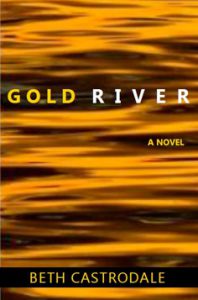
Much has been written about the importance of villains in literature, movies, and television shows. Speaking of books in particular, writer and editor Emily Temple observed that “if everyone was always nice and good and honest all the time, literature probably wouldn’t even exist.”
I strongly agree. Villains challenge protagonists and other characters and press them to fight for what they want. In the process, we learn more about protagonists’ strengths and faults, and what’s important to them. Villains also raise the stakes, and in many cases, bring characters to a crisis or a key decision point, perhaps leading them to new understandings about themselves.
In my novels, not all villains are human. Instead, they might be social or institutional forces that work against the protagonists and keep them from getting what they want. In my novel Marion Hatley, for instance, the main villain is norms about “appropriate” behavior for women in Depression-era America. The title character, a lingerie seamstress, must confront these norms after she gets a teaching job at a small-town school and helps her students learn in unconventional ways. Also, not everyone admires her efforts to end the daily, private trials of all corset-wearing women–especially working women–by creating a beautiful (and unusually comfortable) foundation garment. In countering societal conventions, Marion learns where she can’t make compromises, personal or professional, despite possible damage to her reputation and prospects.
And in my novel In This Ground, set mostly in a cemetery, a major villain is resistance to change. This resistance is embodied by the top dog at the cemetery, who opposes efforts by the cemetery’s manager (and the novel’s protagonist), Ben Dirjery, to offer green burials, an environmentally friendly practice in which bodies are buried without being embalmed or placed in heavy caskets or vaults. As the voice for the community at the cemetery, Ben realizes he must bring townspeople into the fight, and in the process, he comes to see the power of shared efforts, and he forms a stronger bond with the community.
Of course, my books also have human villains. In my forthcoming novel The Inhabitants, one of the villains is a sexual predator who, years before, assaulted a dear friend of the protagonist. After this man is named the headmaster of a prominent private school, the protagonist, a visual artist, is commissioned to paint a portrait of him. With this opportunity comes a chance for her to exact a very public form of revenge.
To my mind, novel-worthy villains (the human kind) are more than just evil or dangerous; they are smart and perhaps even charming or kind–when that serves their interests. In some cases, they have telling hobbies or talents. The villain in my novel I Mean You No Harm, for example, is a reasonably talented drawer and painter who, at times, uses his art to express dangerous desires.
I’m also intrigued by villains who occupy gray areas, as is the case in my novel-in-progress, about a fourth-generation farmer who’s trying to hold onto her land despite pressure from a developer, and from a cousin who would benefit from the developer’s plans. Over time, the protagonist ends up making common cause with an opponent–someone who has threatened her for years–when it turns out that they are faced with a common adversary. Though the opponent is far from a saint, the protagonist learns that she hasn’t understood him fully; nor has he really understood her.
A final point: in all of my books, I’ve tried to go against a tendency in novels, movies, and television programs to associate attractiveness with virtue and “ugliness” (i.e., having physical traits that are not in keeping with conventional standards of beauty) with vice. It’s bad enough that these associations are made in real life, and I don’t wish to perpetuate them in my fiction, especially when writing about villains.
If you have any thoughts about what makes a villain captivating, please share them in the comments section, and thanks in advance for your thoughts!

Thanks for your insights on literary villains. I suppose I also like for them to have some trait or engage in some behavior that makes them almost sympathetic from a certain angle but not too much and which might help explain why they are bad guys in the first place. Such characters with a sliver of virtue or vulnerability can perhaps make them more believable.
That’s such a great point, Tom. I totally agree!